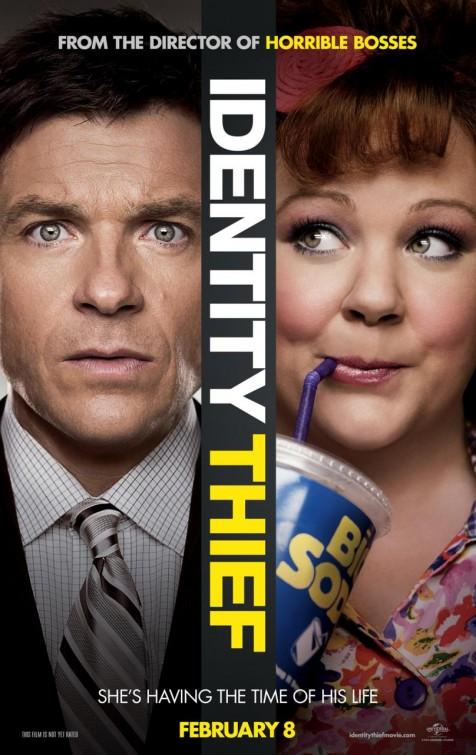 As you’ve probably heard by now, Rex Reed, the film critic for the New York Observer, did not like “Identity Thief.” I agree with his main point on director Seth Gordon’s new film. It’s not good. Not good at all.
As you’ve probably heard by now, Rex Reed, the film critic for the New York Observer, did not like “Identity Thief.” I agree with his main point on director Seth Gordon’s new film. It’s not good. Not good at all.
It’s what Reed said about the film’s star, however, that’s drawing raised eyebrows and angry tweets. In a move that could only be the result of an angry man without an editor – internal or external – or one getting vengeance against a childhood bully, Reed spent portions of his “Identity Thief” review talking not about the film but about its star, Melissa McCarthy, and her weight.
The line that snagged the most disbelieving headlines was his use of the word “hippo” to describe McCarthy, but that’s not even the worst line. In his first reference to the actress, he calls her “tractor-sized.” Later, he says that she has made a career out of being “obese and obnoxious with equal success.” Clearly, he hasn’t seen “Gilmore Girls,” but whatever.
It’s comments like these that give film critics, and critics of all kinds across the nation, a bad name. This piece wasn’t a review of a bad comedy; it was a personal attack disguised as a review. The fact that the parts of the column actually talking about the film are either useless summarization – it’s common critic code that plot summary should be the least important element of a review – or just plain inaccurate (the review falsely states that Bateman loses his job) proves this point.
It’s an ugly piece of filth stuck to the teeth of the film criticism world in a time when critics most certainly do not need it. As I’ve said before, people don’t like critics for the most part. They’re seen as moody, pretentious outsiders turning their noses up at popular art and those trying to make it.
Plus, with the advent of Twitter and Facebook, reviewers are now becoming less important to publishers and audiences. Some movie ads have even replaced critics’ quotes with tweets from fans, some of whom may not have even seen the movie they’re raving about.
I would rant about why anyone would care what a random person on Twitter has to say about a movie over a critics who have studied film for years, but that’s an aggravation for another time.
What I want to focus on right now is writing a scathing review that won’t get you blasted by women’s rights groups and anyone with a sense of common decency. It’s a lost art in this world of anonymous YouTube commenters, where you can say anything without having to face the consequences.
There are really only two basic, “no duh” rules. The first is that you should never get personal (take notes, Mr. Reed, though as a veteran critic, I’d think you’d already have heard this before). Criticizing McCarthy’s weight, or any other physical attribute a person may have, is mean-spirited and, frankly, beside the point. Is this really the main thing you took from this movie to talk about? It’s petty, and it’s not all that interesting to read.
The goal is to talk not about people but about their work, discussing what is good or bad, interesting or not interesting about it. You can get as creative as you would like and use all sorts of hilarious analogies and wordplays to criticize a bad film or piece of artwork, but that’s where one’s aim should stay.
For instance, I hate Adam Sandler’s films, but I wouldn’t insult Sandler himself in a review. His movies are bad and I don’t like his sense of humor, but I can’t comment on him as a person. I’ve never met the guy.
On a side note, if costuming or make-up makes a person look unflattering, then a comment is fine. Costuming and make-up are a part of the work, and if they fail, they fail. If our hero has so much eye shadow that he or she looks like a lost member of the walking dead, feel free to say so.
The second rule of scathing reviews? Remember that movies take work. In the case of filmmaking, a lot of people put a lot of time into trying to make something people would like and maybe even think about. Some films are the product of laziness – you could argue that “Identity Thief” qualifies here – but that’s no reason to try to end people’s careers.
You’re trying to enter into a discussion on a topic. You’re not trying to convince the entire cast and crew of a film to commit public seppuku for their crimes against humanity.
Be constructive with your criticism. Why is a script the most miserable thing you’ve ever heard in your life? Why are the lines bad? Why is the actor the worst actor EVAR? Answering these questions will make your piece sound informed and, better yet, interesting. Being rude, on the other hand, is a crutch for when actual insight is out of grasp.
Both of these guidelines can be wrapped up into one point: Be a decent human being. Anyone can say that a movie is good or bad. A critic can say why, and when he or she can’t, he talks about the lead actress’ weight.
To be honest, “Identity Thief” is guilty, too. The movie and the script dress up McCarthy for maximum embarrassment (gaudy bright colors, excessive make-up, hitting her with objects, making her puke) in the hope that you’ll laugh at the mere sight of her. “She’s short, overweight and unfashionable; it’s funny,” the movie cries. It’s poor treatment of an actress whose chops deserve better.
It’s too bad Reed stepped down to the film’s level.






